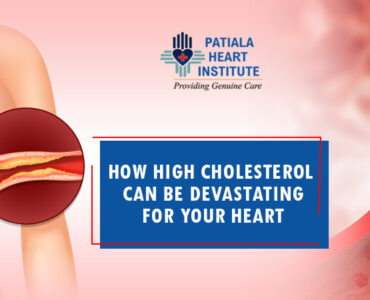To finely tune your heart machine or to keep it running, you need the fuel of heart-healthy foods.
What you put on your plate has a direct impact on your heart health. The reports of the study conducted by the Centre for Disease Control and Prevention [ CDC] warn that eating high in fat or sodium can be bad for your heart.
Therefore, if you are worried about your heart health, one thing you can do is to start eating a heart-healthy diet. Changing your diet and adopting a heart-healthy lifestyle can be the first step toward living a heart-healthy lifestyle.
As your diet plays a key role in reducing the risk of heart disease. In addition, certain foods can keep your heart beating at its best.
In this spotlight, we have outlined 15 heart-healthy foods to protect your heart. Read on to have a better insight into these foods.
Leafy-green vegetables
Leafy-green vegetables are well-known for their wealth of vitamins, antioxidants, and minerals. These leafy green vegetables are a great source of vitamin K, which helps protect your arteries and proper blood clotting.
These vegetables are high in nitrates which have been shown to reduce arterial stiffness and improve blood pressure. In addition, the findings of a study showed that increasing leafy green vegetable intake showed a lower risk of heart disease.
Whole grains
Whole grains include nutrient-rich parts of germs, endosperms, and bran. Compared to refined grains, whole grains are rich in fiber which is good for your heart. In addition, whole grains, including whole wheat, oats, brown rice, and quinoa, are rich in nutrients. This ultimately adds to your better heart health.
Berries
Strawberries, blueberries, and blackberries are jam-packed with essential nutrients that play a crucial role in improving your heart health. Berries are good for your heart as they are rich in antioxidants which protect against the oxidative stress that contributes to the development of heart disease.
Avocadoes
Nothing beats an avocado when it comes to getting an excellent source of heart-healthy monounsaturated fats. A study looked at the effects of a cholesterol-lowering diet in overweight people, with one of the test groups consuming one avocado a day. In addition, being rich in potassium, avocados help improve your heart health.
Oatmeal
Oatmeal is considered a fiber superstar. It is an excellent source of omega-3 fatty acids, offering 4 grams in a one-cup serving. You can top it up with berries to make it a more heart-healthy breakfast.
You can also try fat-free oatmeal cookies, oat bread, or mixed whole rolled oats.
Almonds
For heart-healthy nuts, almonds are a great choice. They contain plant-omega three fatty acids, vitamin E, magnesium, and fiber which are heart-favorable fats.
Almonds are easy to eat, and you can top them with yogurt or salad with salad or healthy-trail mix. You can choose unsalted almonds for better cardiac protection. Almonds are high in calories and are good to eat in moderation for better results.
Kidney beans
Beans are rich in soluble fiber, B-complex vitamins, magnesium, calcium, and omega-3 fatty acids. You can eat this versatile food to enrich your heart health. You can include beans in soups, stews, and salads to get the added benefits of this superfood.
Fatty fish and fish oil
A study showed that eating fatty fish and fish oil three times a week for eight weeks can significantly decrease blood pressure.
Eating fatty fish or fish oil can significantly reduce your heart disease risk factor. Getting a daily dose of omega-3 fatty acids will keep your heart health in check. It helps reduce your blood pressure, triglycerides, and cholesterol.
Walnuts
Walnuts are an excellent choice to keep your heart health in check. They are rich in omega-3 fatty acids which helps in reducing risk factors for heart disease. Walnuts give a healthy crunch to salads and also add taste to muffins and pancakes.
Dark chocolate
Dark chocolates can help boost your heart health as it is rich in antioxidants like flavonoids. In addition, eating dark chocolates can lower the risk of calcified plaque in the arteries.
Be sure to pick high-quality dark chocolate with a cocoa content of at least 70%. You should eat chocolate at least five times a week to reduce the risk of heart attacks or coronary artery disease.
Tomatoes
Tomatoes have high antioxidant properties as they are loaded with lycopene. It helps neutralize harmful free radicals, prevent oxidative damage and inflammation. In addition, lycopene is an excellent antioxidant that has been associated with a lower risk of strokes and heart disease.
Chia and Flax Seeds
Seeds like chia and flax seeds are great sources of heart-healthy nutrients like fiber and omega-3 fatty acids. In addition, these seeds help keep blood pressure under control and have been associated with reduced blood levels.
Garlic
Garlic has always been a natural remedy to treat a variety of ailments. It also contains medicinal properties which can help improve your heart health. Garlic contains allicin which has some great therapeutic benefits. It helps reduce blood pressure and cholesterol and may help inhibit blood clot formation.
Olive-oil
You can’t deny the heart-healthy benefits of olive oil. Olive oil is packed with antioxidants to get relief from inflammation. It is also rich in monounsaturated fatty acids, which help in improving your heart health.
Green tea
Green tea is known to offer several health benefits, from burning fat to improving insulin sensitivity. It contains polyphenols and catechins, which act as an antioxidant to prevent cell damage and reduce inflammation to protect the health of your heart.
Patiala Heart Institute: Best Cardiologist in Patiala
Patiala Heart Institute is well-known for its top-quality heart care. Our team of Cardiologists in Patiala has years of expertise in handling all kinds of heart cases.
Don’t ever ignore your heart health, and contact our cardiologists at Patiala Heart Institute immediately!
Which fruit is best for the heart?
Raspberries, blueberries, or strawberries are jam-packed with important nutrients that centralize heart health. The antioxidant properties of these fruits protect against the oxidative stress and inflammation that contribute to the development of heart disease.
How can I strengthen my heart naturally?
Thirty minutes of moderate daily exercise improve blood pressure and heart strength. Eating a nutritious diet prevents plaque buildup in the arteries. Know your heart health numbers to reduce the risk of heart disease.







I would like to learn more insight from you!